South West hopes for half-term boost
- Published
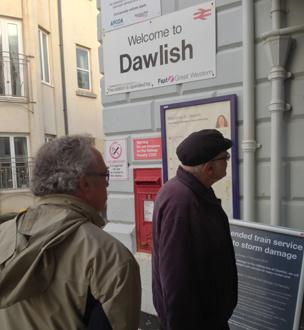
Repair work on the collapsed railways line at Dawlish is set to take six weeks
Huddling amid a group of town officials on a cold and drizzly Devon morning, the mayor of Dawlish was keen to project a positive message.
"Just because the train line's down doesn't mean we're closed for business," Mayor Terry Lowther told the BBC.
That was what he was going to tell the prime minister, who was inspecting repair work on the collapsed section of the main Devon-Cornwall line on Tuesday morning.
The scenic line serves some key towns along the south Devon coast. Conservative estimates suggest it will take six weeks before services resume.
Coastal towns in England's South West are hoping the February half term will bring an influx of visitors, and much-needed revenue, after a stormy start to 2014.
"Some are expressing fears people won't come because the train line's down, but that's not my feeling," said Bob Dyer, who with his wife, Josie, runs the picturesque Dunluce House bed and breakfast overlooking the sea.
But amid the blitz spirit and camaraderie in Dawlish on Tuesday, there were occasional weary sighs. 2014's relentless storms and rain have taken their toll on the local psyche as well as the coast-line.
The region's two main sources of income are tourism and fishing. Both have been badly hit by one of the worst periods of continuous bad weather on record: England's largest fishing port, Newlyn, has only seen one day's fishing this year.
And while it's the off-season for the tourist industry, businesses are hoping next week will bring a stream of holidaymakers from "up-country".
Indeed, some areas seem relatively unscathed by the spate of bad weather: the 140-room Sefton Hotel in the seaside resort of Torquay was fully booked.
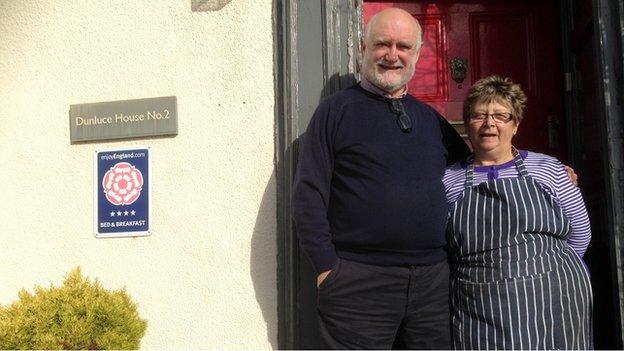
Bob and Josie Dyer in Dawlish say the collapsed railway line will only have a short-term impact on visitor numbers
The hotel caters largely for coachloads of older customers, and Sharon Kelsey at the front desk said bookings were unaffected by the foul weather.
"People just seem to be more niggly and find more things to complain about than when it's fine," she said.
Officials at Torquay's harbour said the 1,000 leisure boats moored there had suffered little damage in the storm. Bill Butcher, Vice Commodore at Royal Torbay Yacht Club, said the construction of modern boats - with smaller vessels made of plastic rather than wood - made them much more resilient.
And Nick Burns from the Torquay Harbour Master's office said the east-facing port had been sheltered from the worst of the gales whipping in from the Gulf Stream to the West.
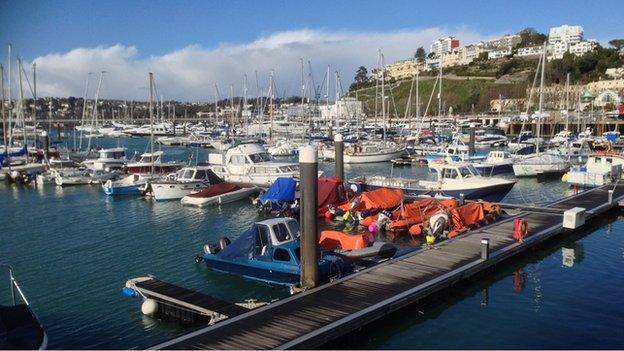
The popular seaside town of Torquay has been relatively unscathed by the recent storms
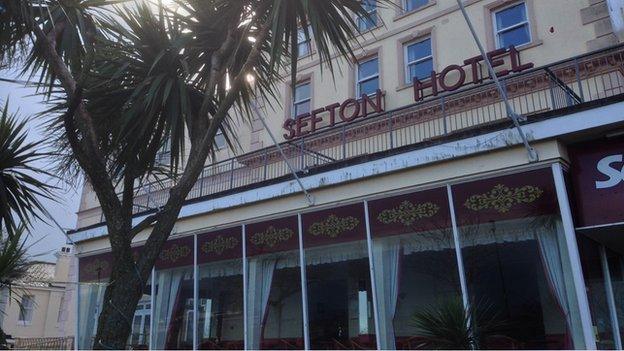
The Sefton Hotel in Torquay - popular with coachloads of elderly visitors - is fully booked
Even ports that have been hit by flooding, like Looe a little further west along the Cornish coast, seem to have bounced back quickly.
He said businesses that had flooded the week before were open for business and all the town's car parks were open - locals had even made an effort to clear flotsam and jetsam from the beach.
A mile or so inland, Tencreek Holiday Park's 118 static caravan homes were fully booked for the latter part of the February half term.
"People are calling to check it's OK to come because they've seen coverage of the floods on the news, but we haven't had any cancellations yet," said Henry Joce, 19, whose family runs the business.
"A very small number of our customers come by train, and the roads are fine except for a few pot holes."
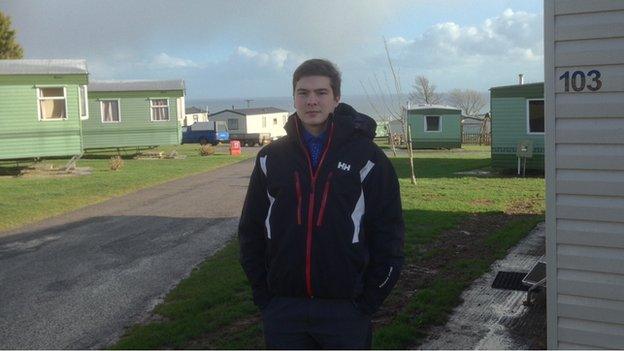
Tencreek Holiday Park near Looe is fully booked for the second part of half term
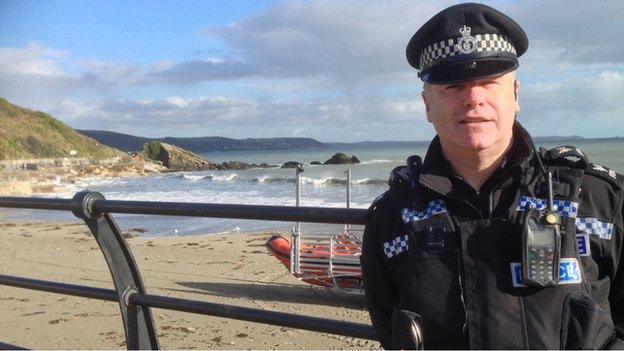
Sgt Michael Howe said Looe's beach had been cleared of detritus and was ready for visitors
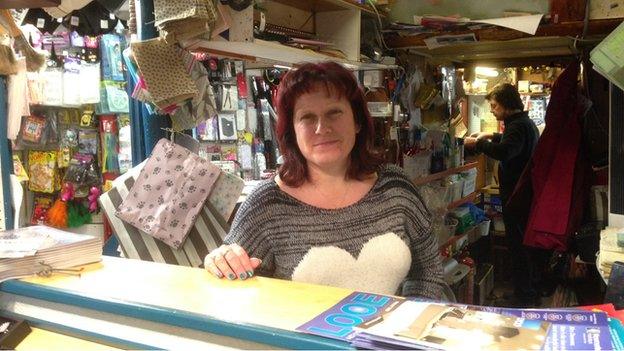
Looe shop-owner Michelle Bassett said she would advise friends not to travel if wet and windy conditions continued
"Looe's prone to flooding and landslips because it's susceptible to the wind and the rain," said Sgt Michael Howe, the police's neighbourhood team leader.
Others, however, seemed less sure. "Tourism's going to be affected big-time," said Michelle Bassett at the Shell and Joke Shop in Looe.
"What with the publicity about the storms that have hit us so far and the fact we've got more storms ahead - I wouldn't want to travel in this weather... We've been losing trees left, right and centre in the heavy winds!"
The story was the same across the Cornish peninsula in Newquay, where whole sections of sea-wall have collapsed into the sea, undermining some beach-side businesses.
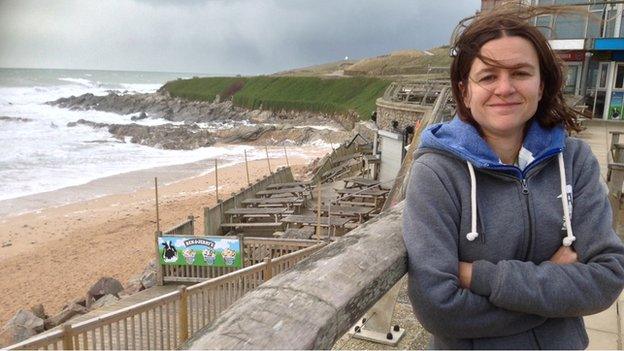
Hannah Turton in popular surfing resort Newquay said it was the number of storms, rather than their power, which was unusual
"The damage hasn't affected us, but the reports about the storms and safety issues will keep people away," said Hannah Turton, the manager at Anne's Cottage Surf shop on Fistral Beach.
"We've had worse storms before, but never this many in a row."
On the balcony outside, Ms Turton pointed out the place where the neighbouring cafe's terrace had been undercut by the churning tide, causing part of it to collapse on to the beach.
"Even though it's a quiet time of year, business is down by about half," she said. "The waves have just been too big for most surfers."
And with more gales and rain forecast for later this week, they look set to stay that way.